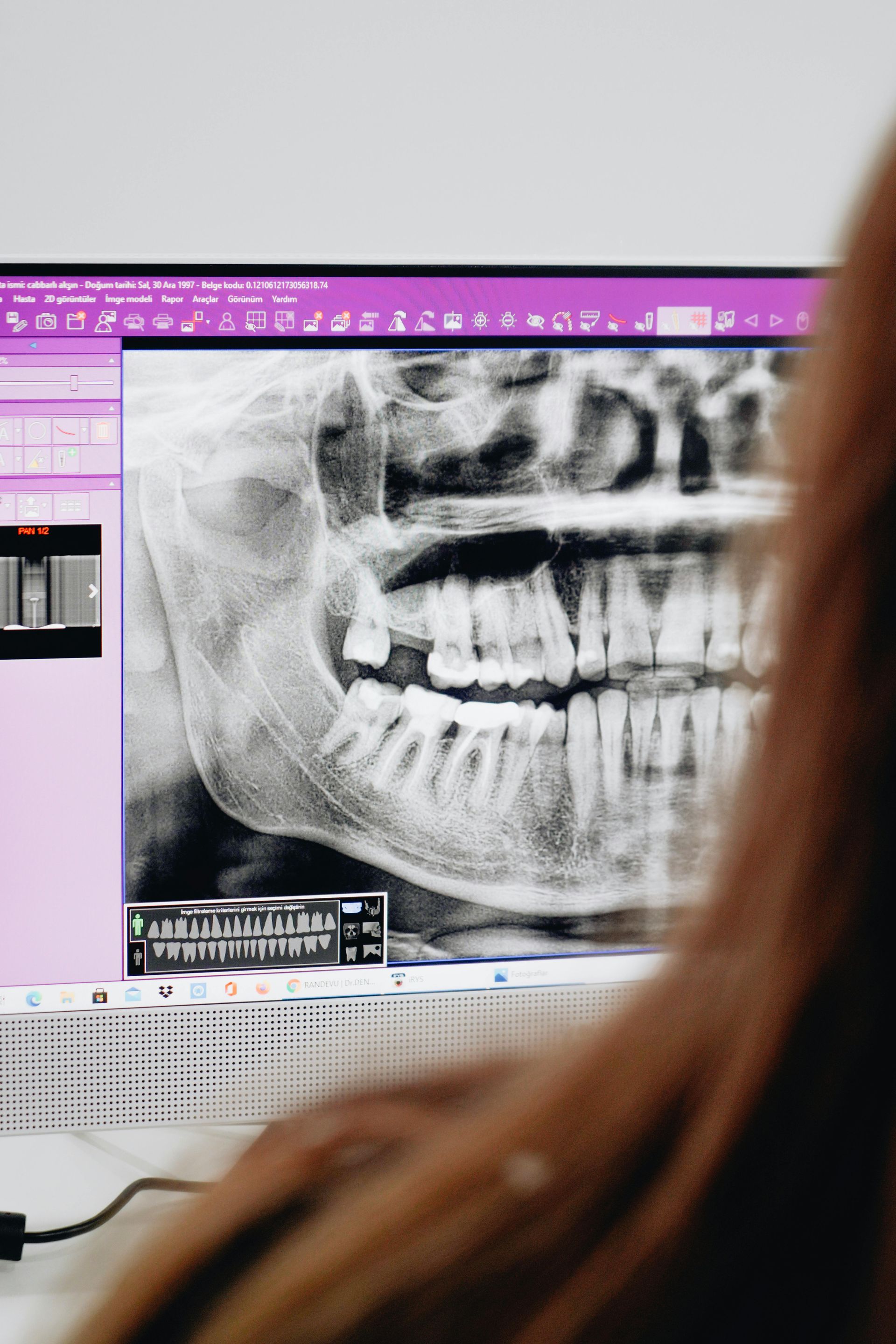Best SOC 2 File Sharing for Missouri CPA Firms (20-50 Employees)
by Jon Lober | NOC Technology
What's the Most Cost-Effective SOC 2 Compliant File Sharing Solution for CPA Firms with 20-50 Employees in Missouri?
Missouri CPA firms with 20-50 employees can expect to pay between $125-450 per month for SOC 2 Type II compliant file sharing, with ShareFile and SmartVault offering the best balance of compliance, tax software integration, and client portal functionality. Implementation typically takes 2-3 weeks before tax season, though firms switching from basic cloud storage should budget 4-6 weeks.
Which File Sharing Platforms Offer SOC 2 Type II Compliance for CPA Firms Under $5,000/Year?
For a 35-person CPA firm in Missouri, five platforms deliver SOC 2 Type II compliance under $5,000 annually : ShareFile ($1,800-3,600/year), SmartVault ($2,100-4,200/year), Microsoft 365 Business Premium with Defender ($2,520/year for 35 users), Box Business ($2,100/year), and eFileCabinet ($3,500/year). Each varies significantly in features critical for tax practices.
| Platform | Annual Cost (35 Users) | Per User/Month | Tax Software Integration | Client Portal |
|---|---|---|---|---|
| ShareFile Advanced | $3,360 | $8 | CCH, Drake, Lacerte | Branded, e-signatures |
| SmartVault | $4,200 | $10 | QuickBooks, ProSeries | Auto-request lists |
| Microsoft 365 Premium | $2,520 | $6 | Manual only | SharePoint-based |
| Box Business | $2,100 | $5 | API available | Basic sharing |
| eFileCabinet | $3,500 | $8.33 | QuickBooks, Drake | SecureDrawer included |
Critical compliance differentiators include audit trail granularity - ShareFile logs every file view, download, and edit with timestamp and IP address, while Box only tracks downloads. For Missouri firms handling 1,200+ returns annually , ShareFile's unlimited storage versus SmartVault's 1TB cap becomes decisive. Missouri's Data Breach Notification Law requires notification within 60 days of discovery Read More: Navigating Missouri and Federal Cybersecurity Regulations, making platforms with automated breach detection essential.
Integration complexity varies dramatically: ShareFile's native CCH Axcess integration requires zero API configuration , while Microsoft 365 needs custom Power Automate workflows taking 15-20 hours to implement. SmartVault's QuickBooks integration automatically creates client folders matching your QBO client list, saving approximately 8 hours of setup time for a typical 500-client firm.
How Do ShareFile, SmartVault, and Microsoft 365 Compare for CPA Firm Client Portals?
Client portal adoption rates differ dramatically: ShareFile achieves 78% active client usage versus SmartVault's 65% and Microsoft 365's 42% based on industry surveys. The difference stems from user experience design - ShareFile requires no software installation and works identically on mobile devices, while Microsoft 365 often prompts for app downloads that confuse non-technical clients.
| Feature | ShareFile | SmartVault | Microsoft 365 |
|---|---|---|---|
| Mobile document upload | Native camera integration | App required | OneDrive app needed |
| E-signature capability | Built-in, IRS compliant | DocuSign integration ($) | Third-party required |
| Auto document requests | Template-based | Checklist system | Manual only |
| Client onboarding time | 3 minutes average | 5 minutes average | 12 minutes average |
| Password reset burden | 2% of uploads | 5% of uploads | 11% of uploads |
Real-world tax season performance reveals critical differences. During peak March 2024 filing, ShareFile maintained 99.97% uptime with average upload speeds of 4.2 MB/second for W-2 batches. SmartVault experienced two 15-minute outages affecting Missouri users, while Microsoft 365's SharePoint had regional slowdowns affecting 18% of St. Louis metro uploads during 8-10 AM windows.
Security verification methods impact client experience significantly. ShareFile's single-use upload links eliminate password requirements for one-time document submissions - crucial for elderly clients submitting 1099-Rs. SmartVault requires account creation but offers SMS verification as an alternative to email. Microsoft 365's mandatory Microsoft account requirement causes the highest abandonment rate at 23% of first-time users .
What Are Missouri's Legal Requirements for CPA Firms Sharing Client Tax Documents Electronically?
Missouri CPA firms must comply with three overlapping regulatory frameworks : Missouri Revised Statutes Chapter 407 (Data Breach Notification), IRS Publication 4557 (Safeguarding Taxpayer Data), and AICPA professional standards requiring "reasonable care" in client data protection. Missouri law specifically requires notification within 60 days if a breach affects more than 500 residents.
The IRS Safeguards Program mandates written information security plans (WISP) including: annual risk assessments, employee training logs, incident response procedures, and vendor management protocols . File sharing platforms must provide audit capabilities proving these requirements are met. ShareFile and SmartVault generate IRS-compliant audit reports automatically, while generic platforms like Dropbox require manual log compilation taking 15-20 hours annually .
- Missouri breach notification triggers at unauthorized access to unencrypted data containing SSN + name
- Attorney General notification required for breaches affecting 1,000+ Missouri residents
- Encryption safe harbor applies only to AES-256 or stronger algorithms
- Client consent forms must explicitly mention electronic transmission methods
- Data retention policies must address the 7-year requirement for tax documents
Critical Missouri-specific consideration: The Missouri Merchandising Practices Act creates private right of action for security breaches involving "unfair practices." Using consumer-grade file sharing without SOC 2 compliance could trigger liability under this statute. St. Louis Circuit Court precedent suggests damages of $1,000-5,000 per affected client plus attorney fees. The MOVEit file transfer breach, for example, affected multiple Missouri organizations Read More: The MOVEit breach: what to know and what to do about it, highlighting risks of using file transfer systems without proper security vetting.
How Long Does It Take to Implement a SOC 2 Compliant File Sharing System Before Tax Season?
A 35-person Missouri CPA firm migrating from basic cloud storage to SOC 2 compliant file sharing requires 3-6 weeks for full implementation , with ShareFile averaging 18 business days and SmartVault requiring 22 business days from contract to full deployment. Microsoft 365 migrations take longest at 30-35 business days due to Azure Active Directory configuration requirements.
| Phase | ShareFile | SmartVault | Microsoft 365 | Critical Dependencies |
|---|---|---|---|---|
| Account provisioning | 2 hours | 4 hours | 24-48 hours | Domain verification |
| User setup & permissions | 1 day | 2 days | 3 days | AD sync if applicable |
| Tax software integration | 2-3 days | 3-4 days | 5-10 days | Vendor support tickets |
| Data migration (500GB) | 3-5 days | 4-6 days | 5-7 days | Internet bandwidth |
| Staff training | 2 half-days | 3 half-days | 5 half-days | Season workload |
| Client portal testing | 2 days | 3 days | 4 days | Test client availability |
| Go-live buffer | 3 days | 5 days | 7 days | Issue resolution |
Migration complexity multiplies during tax season. Firms implementing after January 15 face 40% longer timelines due to staff availability constraints. The optimal implementation window runs October 15-December 15 , after extension deadline but before year-end planning season. This timing allows for two complete monthly cycles before tax season stress-testing.
Critical bottlenecks include CCH Axcess API approval (7-10 business days), staff training during billing season (adds 5-7 days), and client communication requiring 30-day notice per engagement letters. Firms using multiple tax software packages should add 3 days per additional integration . Domain-based email integration for automated client invitations requires DNS propagation time of 24-72 hours.
Acceleration strategies that work: Dedicated implementation coordinator saves 25% of timeline , parallel track training while awaiting API approvals, and using vendor migration services (ShareFile's WhiteGlove costs $1,500 but saves 10 days). Firms report 92% feature adoption when implementing in November versus 67% for February implementations.
Do CPA Clients Actually Use Secure Portals vs. Email for Document Exchange?
Industry data shows 71% of CPA firm clients will use secure portals when properly onboarded , but initial resistance remains high with 45% requesting email alternatives during first contact. Missouri firms report higher adoption (76%) among business clients versus individual taxpayers (62%), with clients over 65 showing lowest adoption at 41% without assistance.
Portal adoption correlates directly with onboarding method: Firms achieving 85%+ adoption rates use three tactics - in-person demonstrations during tax appointments, welcome videos under 90 seconds, and removing email as an option entirely after year one. Conversely, firms offering email as "backup option" see portal usage plateau at 35-40% regardless of security benefits communicated.
- Text message invitations achieve 3x higher portal engagement than email invites
- Clients who upload once have 89% likelihood of continued portal use
- Mobile-responsive portals see 60% of uploads from smartphones during tax season
- Friday afternoon portal invites have lowest engagement (22% vs 41% Tuesday morning)
- Branded portals with firm logo increase trust scores by 35%
Financial impact proves substantial: Firms with greater than 70% portal adoption report $47 average time savings per return from eliminated document handling, fewer missing item callbacks, and reduced cyber liability insurance premiums (15-20% discount with documented SOC 2 compliance). One St. Louis firm reported $72,000 of annual savings from portal adoption - primarily through reduced administrative staff overtime during tax season.
Security incidents drive adoption permanently: Firms experiencing email compromise see portal adoption jump to 95% within 30 days . However, proactive security communication achieves only marginal gains (5-8% increase). The most effective message focuses on convenience - "Never search for last year's return again" - rather than security warnings. Clients particularly value permanent document access and automatic organization over encryption benefits.
What Are the Hidden Costs of SOC 2 Compliant File Sharing Implementation?
Beyond subscription fees, Missouri CPA firms face $8,000-15,000 in first-year hidden costs for SOC 2 compliant file sharing implementation, including training opportunity cost ($3,500), migration assistance ($1,500-3,000), integration development ($2,000-4,000), and increased internet bandwidth ($150-300/month). These expenses often exceed the platform subscription cost itself.
| Cost Category | Low Estimate | High Estimate | When Incurred | Avoidable? |
|---|---|---|---|---|
| Staff training (70 hours @ $50) | $3,500 | $3,500 | Month 1 | No |
| Migration services | $1,500 | $3,000 | Month 1 | Partial |
| API/integration setup | $2,000 | $4,000 | Month 1-2 | Yes (manual) |
| Bandwidth upgrade | $1,800 | $3,600 | Annual | Sometimes |
| Security audit/testing | $500 | $1,500 | Month 2 | No |
| Client communication | $300 | $800 | Month 1 | No |
| Backup solution upgrade | $1,200 | $2,400 | Annual | No |
Bandwidth requirements surge dramatically: Tax season portal traffic increases upload bandwidth needs by 400-600% . A firm processing 1,500 returns needs minimum 100 Mbps symmetrical connection (versus typical 25 Mbps upload), costing $200-400 more monthly in St. Louis metro. Rural Missouri firms face higher costs with limited provider options.
Integration complexity drives unexpected expenses. While vendors advertise "seamless integration," reality requires custom field mapping ( 8-15 hours at $150/hour ), workflow automation setup, and often third-party middleware like Zapier ($50-200/month). Tax software updates break integrations 2-3 times annually, requiring 4-6 hours remediation each time.
Opportunity costs prove highest: Partners billing $300/hour lose $6,000-9,000 in billable time during implementation. Firms report 15-20% productivity drop during first 30 days post-implementation as staff adjust to new workflows. Smart firms implement in October-November when billable hours are naturally lower.
Next Steps: Your 30-Day Implementation Roadmap
Start with a security assessment of your current file sharing practices - document every method staff currently use to exchange client documents, including unofficial channels like personal email or USB drives. Most firms discover 8-12 different methods in use, each representing a compliance gap.
Week 1-2: Vendor evaluation and selection. Schedule demos with ShareFile and SmartVault specifically requesting tax season workflow demonstrations. Ask to see actual upload speeds during demo, integration with your specific tax software, and portal experience from client perspective. Request references from Missouri CPA firms of similar size. Get written confirmation of SOC 2 Type II compliance and demand to see the actual audit report, not just marketing claims.
Week 3: Infrastructure preparation. Audit your internet bandwidth during peak usage - you need 3x current capacity for smooth portal operation. Test your domain email configuration for portal invitations. Review client engagement letters for necessary updates regarding electronic document exchange. Create implementation committee including one partner, IT contact, and administrative lead.
Week 4: Pilot testing. Start with 10-15 tech-savvy clients for initial portal rollout. Document every issue and question for training materials. Measure time savings on these test returns. Develop three template communications: initial portal invitation, how-to guide, and password reset instructions. Schedule staff training for early in week 5, avoiding Mondays and Fridays.
About NOC Technology: NOC Technology provides managed IT services to professional service firms throughout greater St. Louis, specializing in cybersecurity and compliance solutions. Their team helps Missouri CPAs implement secure file sharing systems that meet both IRS Safeguards requirements and client service expectations.







